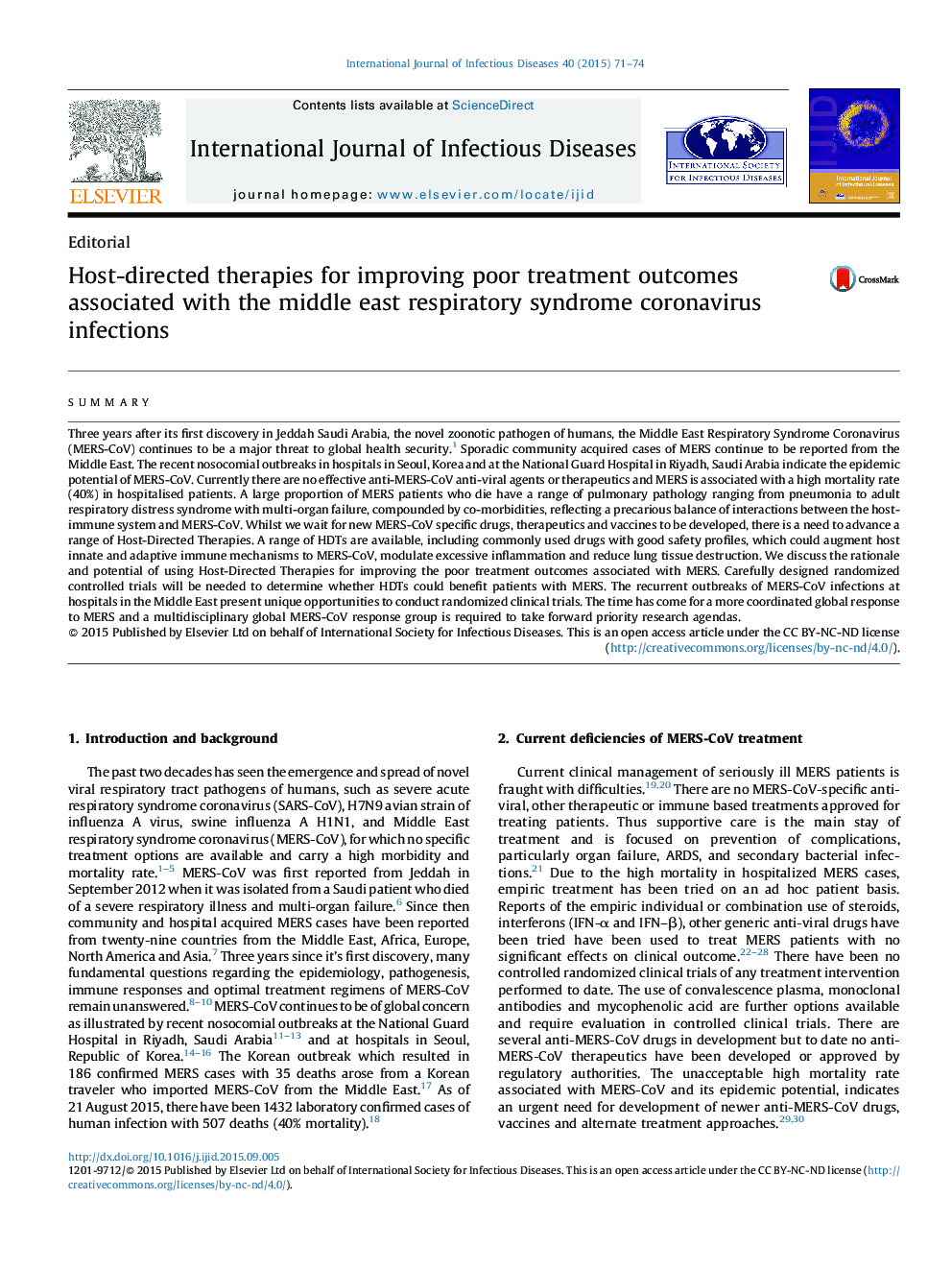| کد مقاله | کد نشریه | سال انتشار | مقاله انگلیسی | نسخه تمام متن |
|---|---|---|---|---|
| 3361950 | 1592055 | 2015 | 4 صفحه PDF | دانلود رایگان |
SummaryThree years after its first discovery in Jeddah Saudi Arabia, the novel zoonotic pathogen of humans, the Middle East Respiratory Syndrome Coronavirus (MERS-CoV) continues to be a major threat to global health security.1 Sporadic community acquired cases of MERS continue to be reported from the Middle East. The recent nosocomial outbreaks in hospitals in Seoul, Korea and at the National Guard Hospital in Riyadh, Saudi Arabia indicate the epidemic potential of MERS-CoV. Currently there are no effective anti-MERS-CoV anti-viral agents or therapeutics and MERS is associated with a high mortality rate (40%) in hospitalised patients. A large proportion of MERS patients who die have a range of pulmonary pathology ranging from pneumonia to adult respiratory distress syndrome with multi-organ failure, compounded by co-morbidities, reflecting a precarious balance of interactions between the host-immune system and MERS-CoV. Whilst we wait for new MERS-CoV specific drugs, therapeutics and vaccines to be developed, there is a need to advance a range of Host-Directed Therapies. A range of HDTs are available, including commonly used drugs with good safety profiles, which could augment host innate and adaptive immune mechanisms to MERS-CoV, modulate excessive inflammation and reduce lung tissue destruction. We discuss the rationale and potential of using Host-Directed Therapies for improving the poor treatment outcomes associated with MERS. Carefully designed randomized controlled trials will be needed to determine whether HDTs could benefit patients with MERS. The recurrent outbreaks of MERS-CoV infections at hospitals in the Middle East present unique opportunities to conduct randomized clinical trials. The time has come for a more coordinated global response to MERS and a multidisciplinary global MERS-CoV response group is required to take forward priority research agendas.
Journal: International Journal of Infectious Diseases - Volume 40, November 2015, Pages 71–74
